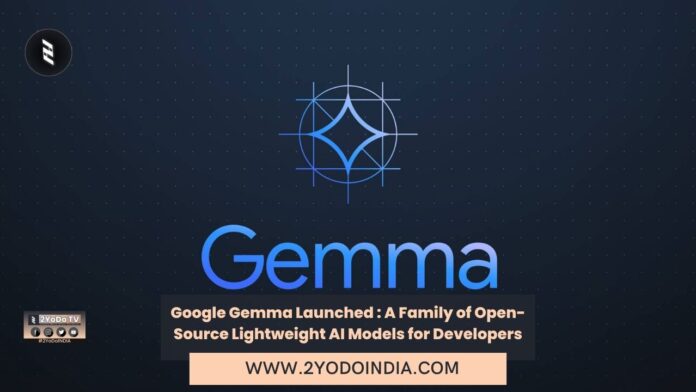Google has release a new lightweight open-source family of artificial intelligence (AI) models call as Gemma on 21st February 2024. Comes in two variants, Gemma 2B and Gemma 7B, have made available to developers and researchers.
The Google said it use the same technology and research for Gemma that it use to create Gemini AI models.
These smaller language models can be use to make task-specific AI tools, and the company allows responsible commercial usage and distribution.
The announcement was made by Google CEO Sundar Pichai in a post on X (formerly known as Twitter).
Introducing Gemma – a family of lightweight, state-of-the-art open models for their class built from the same research & tech used to create the Gemini models.
— Sundar Pichai (@sundarpichai) February 21, 2024
Demonstrating strong performance across benchmarks for language understanding and reasoning, Gemma is available… pic.twitter.com/qWDAmEw7CP
Google has also create a developer-focuse landing page for the AI model, where people can find quickstart links and code examples on its Kaggle Models page, quickly deploy AI tools via Vertex AI (Google’s platform for developers to build AI/ML tools), or play around with the model and attach it to a separate domain using Collab (it will require Keras 3.0).
Features of the Gemma AI Models
Google said that both the variants are pre-trained and instruction-tune.
It is integrate with popular data repositories such as Hugging Face, MaxText, NVIDIA NeMo, and TensorRT-LLM.
Google Gemma models can run on laptops, workstations, or Google Clouds via Vertex AI and Google Kubernetes Engine (GKE).
The Google has also release a new Responsible Generative AI Toolkit to help developers build safe and responsible AI tools.
As per reports share by Google, Gemma has outperform Meta’s Llama-2 language model in multiple major benchmarks such as Massive Multitask Language Understanding (MMLU), HumanEval, HellaSwag, and BIG-Bench Hard (BBH).
Meta has already begun working on Llama-3, as per reports.
Releasing open-source smaller language models for developers and researchers is something that has become a trend in the AI space.
Meta, MosaicML, and even Google with its Flan-T5 models already exist in open-source.
It helps build an ecosystem as all developers and data scientists who are not working with the AI firms can try their hands at the technology, and create unique tools.
It also benefits the company as most often firms themselves offer deployment platforms that come with a subscription fee.
Also, adoption by developers often highlights flaws in the training data or the algorithm that might have escape detection before release, allowing the enterprises to improve their models.





